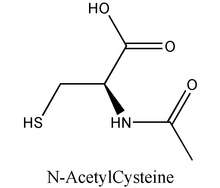 For years at Optimum Health, we have been helping people understand the critical role of oxidation and inflammation in affecting mitochondrial function, and the role this plays in cancer development and progression...(and what to do about it to support your healthy cells.) It is great to see this increasingly coming out in the literature. [1] Yet, normal cellular development and behavior, or the lack thereof, also has much to do with what goes on in the connective tissue that surrounds and supports our cells, holding them together, i.e. the extracellular matrix. A prime example of this is what are called stroma in breast tissue. [2] These are tissues consisting mainly of collagen, which can be sites of high oxidative stress in cases of breast cancer. [3,4]. The oxidative stress in the stroma can fuel cancer cells and promote cancer aggressiveness. [3,4,5]
For years at Optimum Health, we have been helping people understand the critical role of oxidation and inflammation in affecting mitochondrial function, and the role this plays in cancer development and progression...(and what to do about it to support your healthy cells.) It is great to see this increasingly coming out in the literature. [1] Yet, normal cellular development and behavior, or the lack thereof, also has much to do with what goes on in the connective tissue that surrounds and supports our cells, holding them together, i.e. the extracellular matrix. A prime example of this is what are called stroma in breast tissue. [2] These are tissues consisting mainly of collagen, which can be sites of high oxidative stress in cases of breast cancer. [3,4]. The oxidative stress in the stroma can fuel cancer cells and promote cancer aggressiveness. [3,4,5]
In a recent study at the University of Salford, entitled:
Pilot study demonstrating metabolic and anti-proliferative effects of in vivo anti-oxidant supplementation with N-Acetylcysteine in Breast Cancer
 Researchers treated human subjects with stage 0 and stage 1 breast cancer, who were waiting for surgery, with the antioxidant N-Acetylcysteine. The subjects were treated both intravenously (150mg/kg) and orally (600mg 2x/d on non-IV days) for between 14-27 days. Pre and post biopsies revealed that the brief period of NAC treatment dramatically reduced the expression of transporter cells, a major marker for breast cancer aggressiveness and fatality, by up to 80%, thereby largely halting growth and spread of the breast cancers.
Researchers treated human subjects with stage 0 and stage 1 breast cancer, who were waiting for surgery, with the antioxidant N-Acetylcysteine. The subjects were treated both intravenously (150mg/kg) and orally (600mg 2x/d on non-IV days) for between 14-27 days. Pre and post biopsies revealed that the brief period of NAC treatment dramatically reduced the expression of transporter cells, a major marker for breast cancer aggressiveness and fatality, by up to 80%, thereby largely halting growth and spread of the breast cancers.
See: http://www.seminoncol.org/article/S0093-7754(17)30136-7/abstract
The authors state in the discussion:
“We demonstrate in a clinical trial that NAC reduces carcinoma cell proliferation rates in patients with stage 0 and 1 breast cancer. NAC also alters a stromal marker of metabolism with reduced MCT4 expression.”
As discussed by the authors, as well as in several of our past articles, NAC's antioxidant capabilities come largely from its ability to increase levels of a master antioxidant called glutathione, which is involved in many functions throughout the body such as detoxification, immune function, mitochondrial fuction, and much more.
Until next time, be well.
John,

Disclaimer: The above information is provided for informational purposes only and is not intended to replace the advice of your physician.
References
[1] Wilde, L., Roche M., Domingo-Vidal, M., Tanson, K., Philip N., Curry, J., Martinez-Outschoom, U. : Metabolic coupling and the Reverse Warburg Effect in cancer: Implications for novel biomarker and anticancer agent development . Cancer, Metabolism and the Mitochondria; P 198-203 Published online October 10, 2017 Full-Text HTMLPDF
[2]. https://www.ncbi.nlm.nih.gov/pmc/articles/PMC2823823/
[3]. http://www.seminoncol.org/article/S0093-7754(17)30136-7/abstract
[4]. https://www.ncbi.nlm.nih.gov/pmc/articles/PMC3427239/
[5]. Sourbier, C., Neckers, L.: Uncoupling tumor-stroma interactions in breast cancer patients. Cancer, Metabolism and the Mitochondria; p 235-236. Published online: October 17, 2017

